Reverb Gives provides students, teachers, and leaders of music programs with the instruments that they need, directly from the Reverb marketplace. Since its launch, Reverb Gives has had the opportunity to help support a variety of remarkable organizations committed to making the world a more musical place.
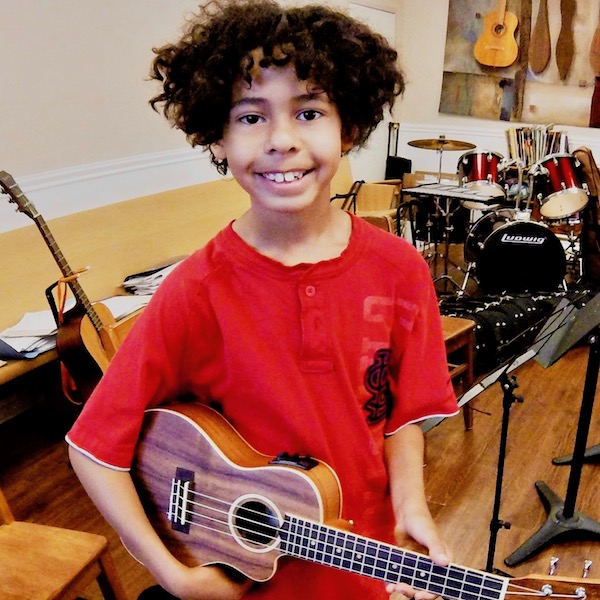
With so many unique missions, all revolving around music and music education, we wanted to take the opportunity to spotlight some of these organizations, detailing their cause and highlighting the great work that they’re doing with music.
Today, we're learning more about the Strings Attached Project—a nonprofit started by Reverend Steve Lawler of St. Stephen’s Episcopal Church in Ferguson, MO as part of a community outreach branch called, “The Vine.”
He wanted to help the community by offering affordable music education with a focus on guitar in a community setting. Read below to learn more about the organization's history, its continuing projects, and what you can do to get involved.
What is the Strings Attached Project?
The primary objective of Strings Attached is to provide affordable music education and instruments to families who may not otherwise be able to support children with private lessons and starter instruments. The project provides loaner instruments to kids without (about 80%) and awards new instruments to youth who stay with the project for more than 1.5 years, have good study habits, and give back to the community through performance.
This is where Reverb Gives has been especially helpful, in getting us those instruments. Many schools and other programs don’t allow kids to take their instruments home, and we're aware that many kids won't make progress without the ability to practice with a good quality instrument. So we've been able to use Reverb Credits to purchase more loaner ukuleles for the project, as well as bass amps, a new banjitar, and two new mandolins for students who are pursuing those instruments.
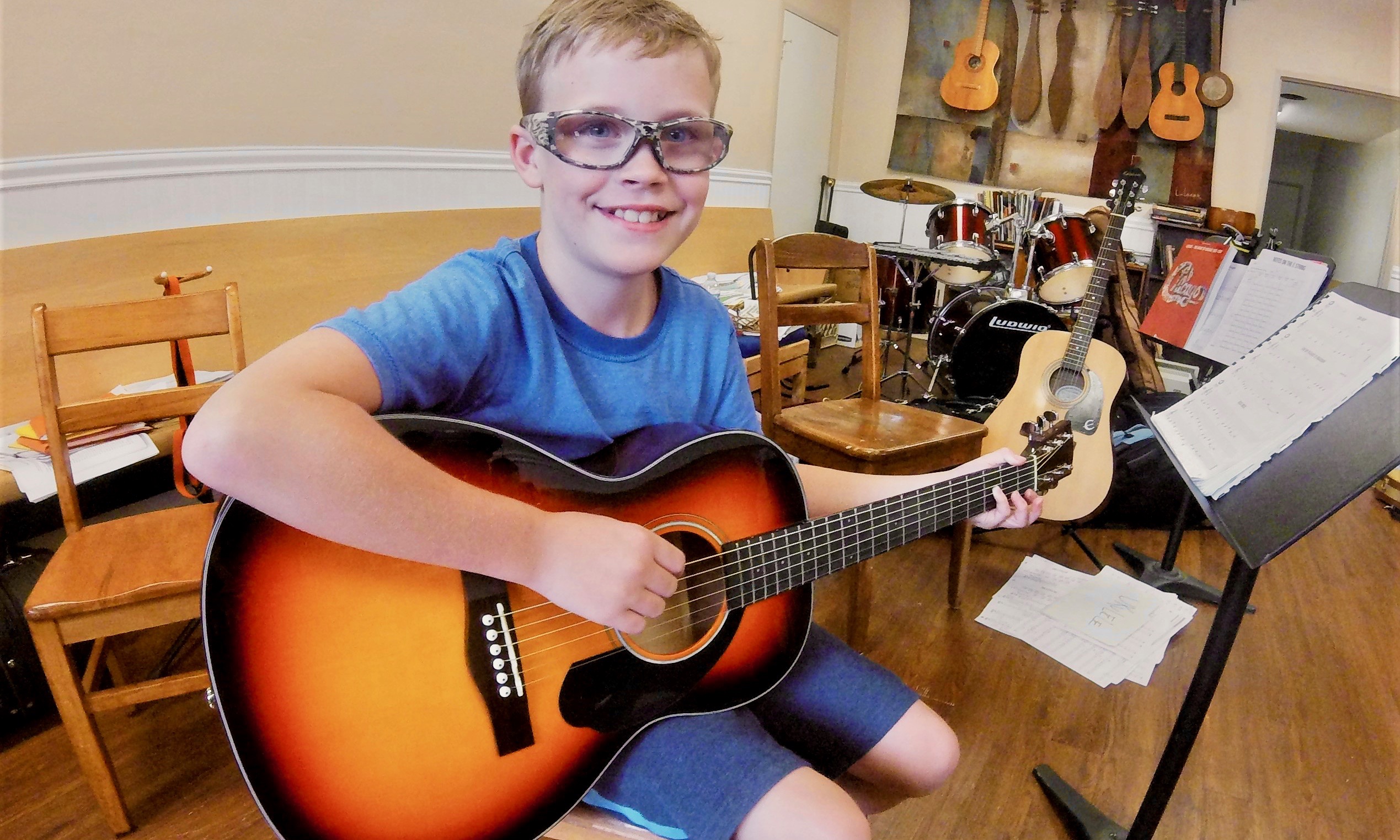
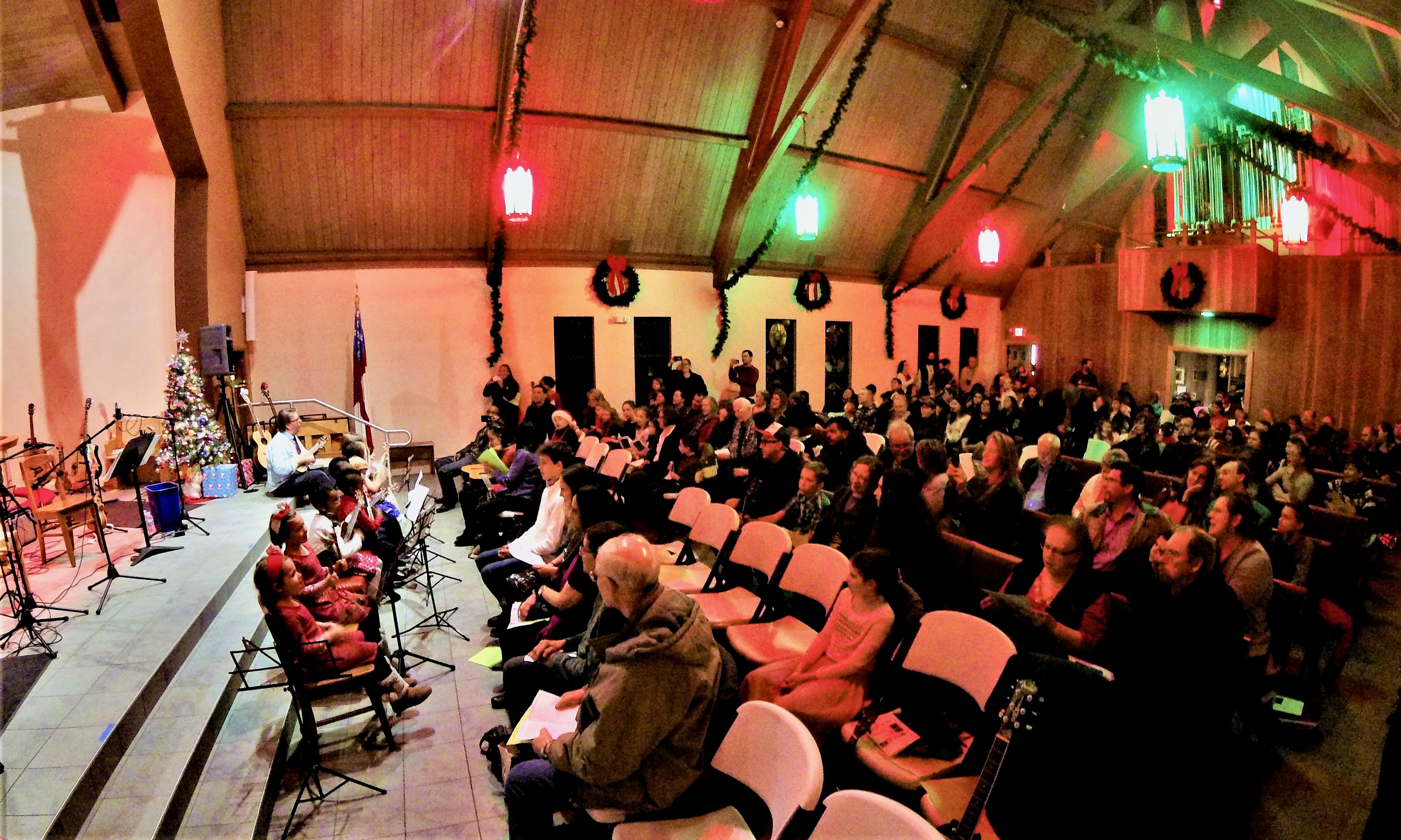
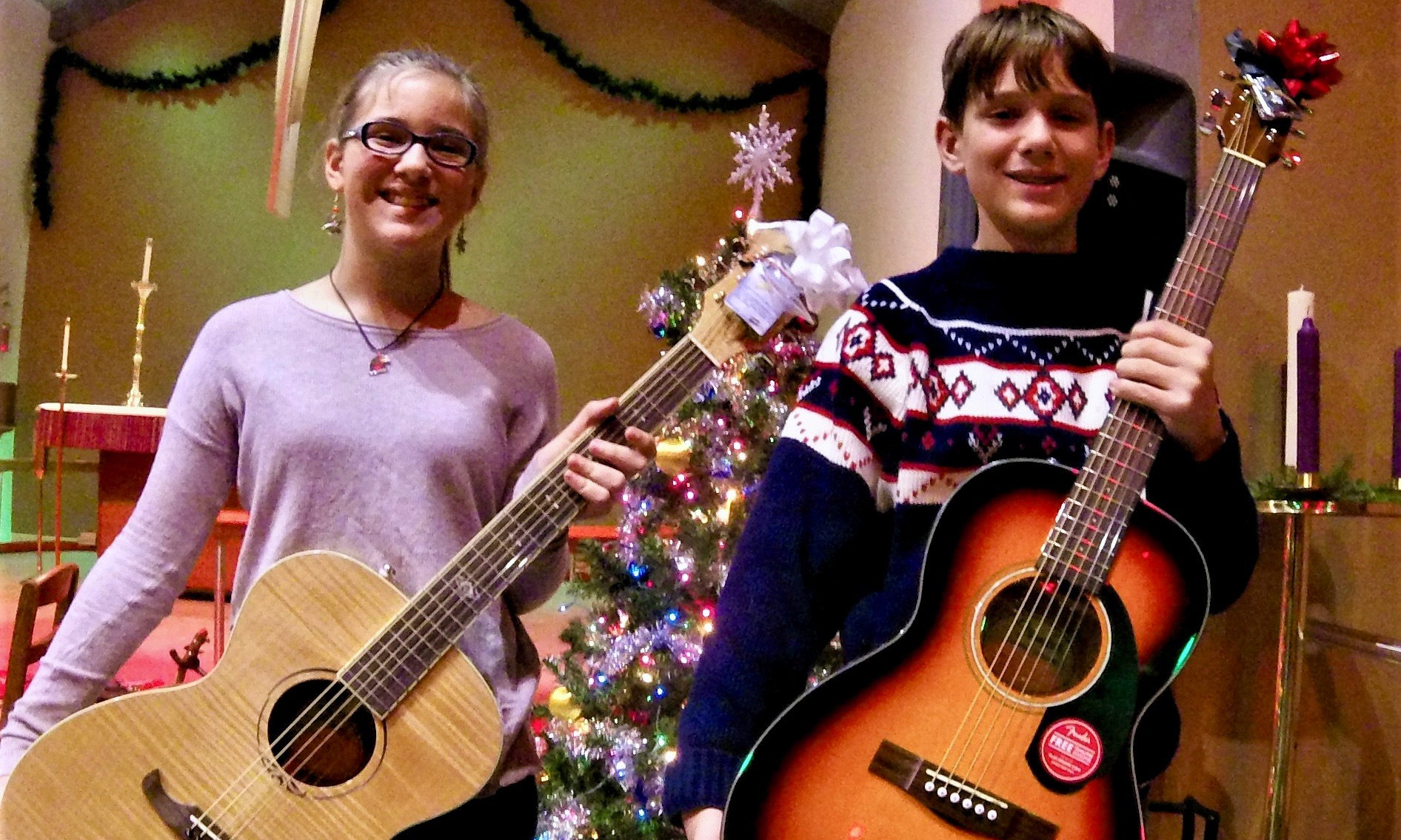
Can you talk a bit about those who work for and with the Strings Attached Project—teachers, volunteers? What are some of their backgrounds and how did they get involved?
The project is taught by Steve Housewright. He has 20 years of nonprofit experience as a music teacher in Los Angeles and St. Louis, with a focus on youth in challenging neighborhoods. Prior to the Strings Attached project, he taught youth in many gang- troubled Los Angeles neighborhoods—MacArthur Park, Pacoima, and the Yucca corridor in Hollywood.
Steve's previous career as a location scout in the film industry included scouting the film Mr. Holland’s Opus, which starred Richard Dreyfuss and was about a music teacher facing budget cuts to his music classes and the elimination of his position. After working for 20 years in the film business, Steve was inspired by the script to eventually return to music and teaching.
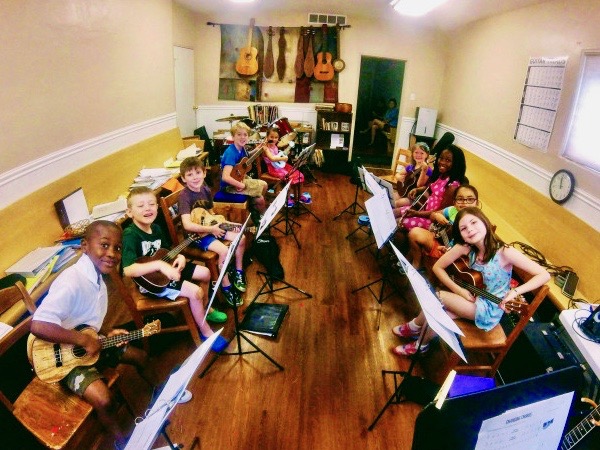
The project also hires many of St. Louis’ best Americana musicians to create a series of studio recordings with project students. Strings Attached has made four albums focusing on a variety of American music—traditional folk, ragtime/blues, cowboy and rockabilly—that combine the developing talents of students with St. Louis recording and touring artists.
Paid and volunteer music artists also help Strings Attached by providing music education visits to local schools, including demonstrations of ragtime music, slide guitar, and even the art of playing “bones.” Recording artist Pokey LaFarge is among the artists that have donated time to visit elementary and high school kids with performances and talks on American music with Strings Attached.
How about the youth? How do they get involved with Strings Attached? Do any of them have prior music experience, or are most brand-new to their instruments?
Most students come to the project without music experience and without instruments, having learned about us through word-of-mouth or by attending a performance.
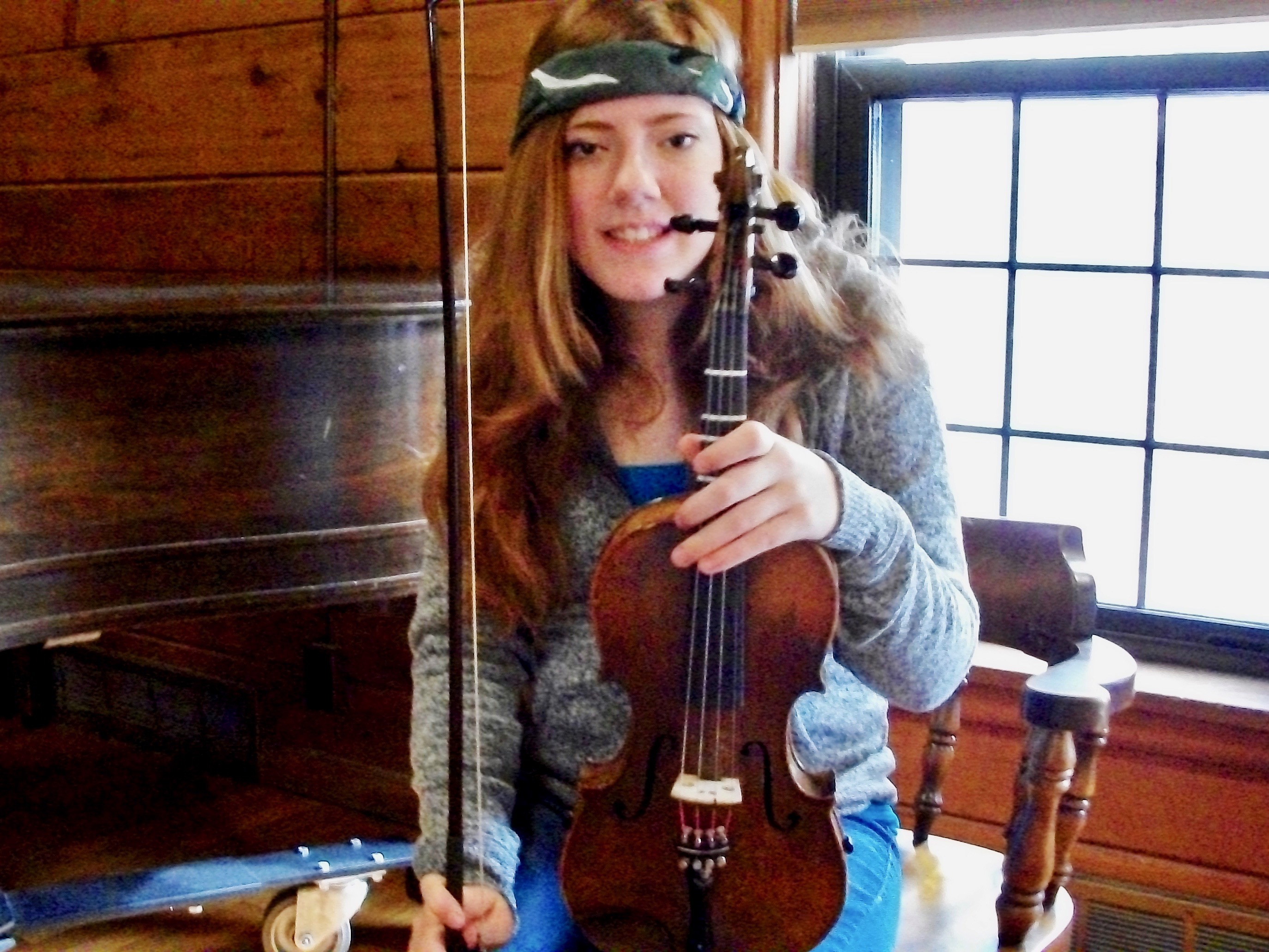
We start kids as young as five years old in group classes in ukulele and many stay with ukulele as their primary instrument. Some graduate to baritone ukulele (tuned the same as the first 4 strings of guitar) and use it as a transitional instrument to guitar, while others start right away with guitar.
All students are offered private individual lessons and get at least a half an hour of individual instruction each week. They learn to read notes, follow chord charts, musical form, work in ensembles, perform for the community, and some students even get recording experience.
For many students, the guitar or ukulele are gateway instruments to learn to read music and then gain the skills and confidence they need to get involved in school or church music groups. They begin to tackle other instruments in those settings including piano, violin, viola, cello, and more.
What kinds of programs and projects does the Strings Attached Project run, support, or facilitate?
We have approximately 70 year-round students in individual lessons each week in guitar, ukulele, mandolin, banjitar, and bass guitar. We also provide two eight-week group sessions in beginning ukulele for kids ages five through eight each year. Each summer we collaborate with other area nonprofits to provide free lessons to kids in guitar and ukulele in summer learning programs to combat summer learning loss. We’ve collaborated with Mission St. Louis and Earthdance Organic Farm School on summer programs.
In 2018 and 2019, we’re collaborating with the St. Louis County Library system to offer ukulele lessons to about 150 teens in library branches during summer months. Put together, the project effects between 200 and 250 kids each year with hands-on music training.
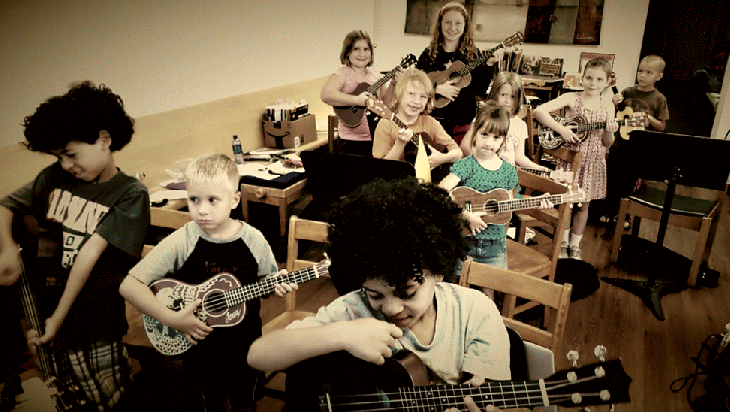
And this year we’ve provided 30 ukuleles to a local Ferguson elementary school music teacher that he will use to teach three grades of students basic chords, strumming patterns, and songs. We really like to support local arts teachers however we can and recently did a three-year residency at another elementary school teaching guitar and ukulele weekly to first through third graders.
As mentioned, we also do community performances with students each year in community recitals, and the project also creates recordings in a local professional recording studio that combines student performance and adult musicians. These recordings are sponsored by the St. Louis Regional Arts Commission and are available to listen to online here and here.
Are there any recent events you'd like to highlight or upcoming events you'd like to promote?
We’re excited about our library collaboration this year. Our first library class starts in March and extends through July. The local library system is now offering ukuleles, guitars, banjos, and bongos that can be checked out the way patrons check out books. So we’re very pleased to be of support with this effort by giving patrons basic instruction on how to play and read music that they can check out at their local library branch.
We look forward to participating for the fourth year of NAMM Foundation’s “Make Music Day” in June and “Play Music on the Porch Day” in August with street performances by Strings Attached students. Both international events promote “music for all” by allowing music-makers—young and old, amateur and professional—an opportunity to get out and make music for anyone to listen to in public spaces. Also hope to produce our fifth album this year of traditional American Music entitled Homegrown with our students.
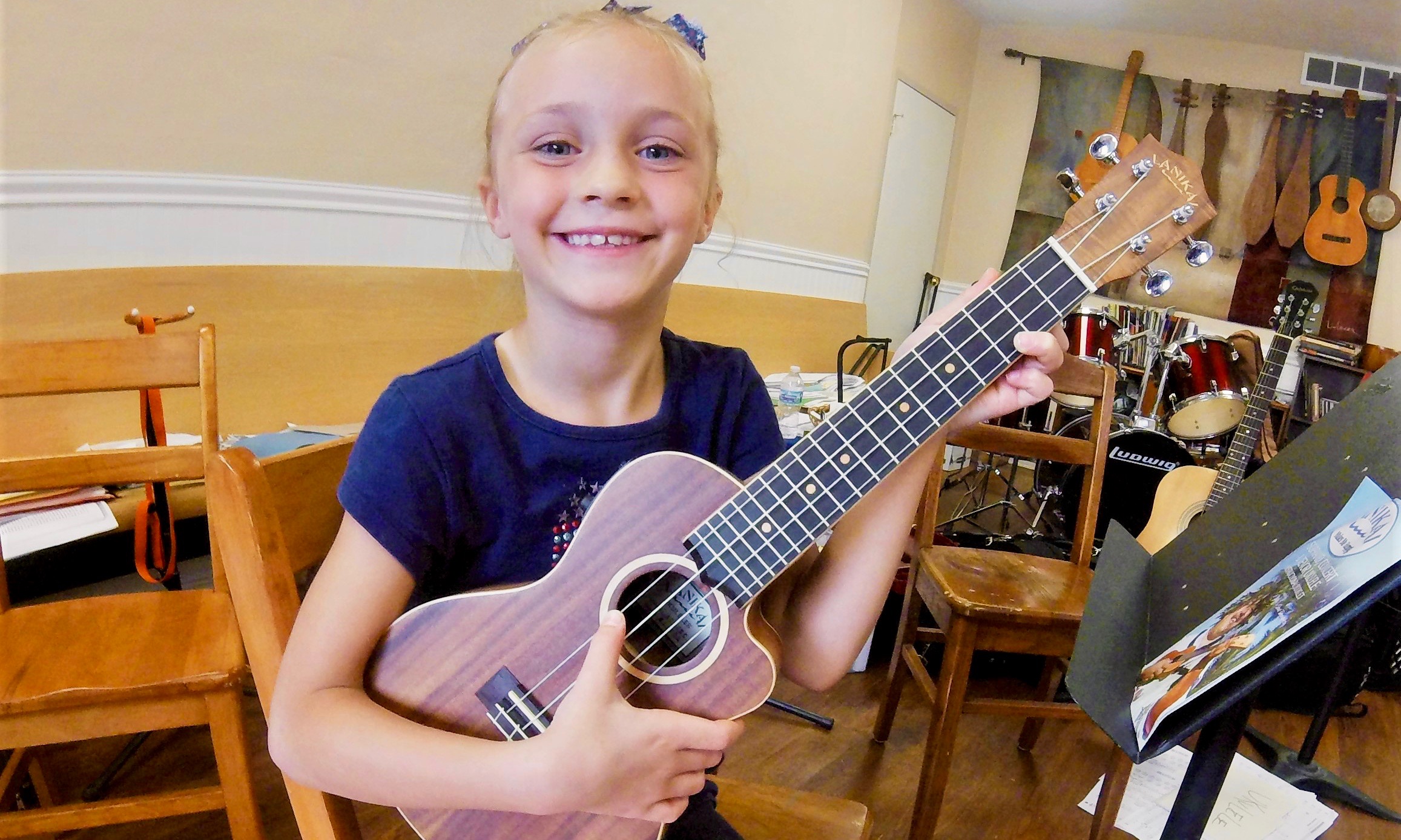
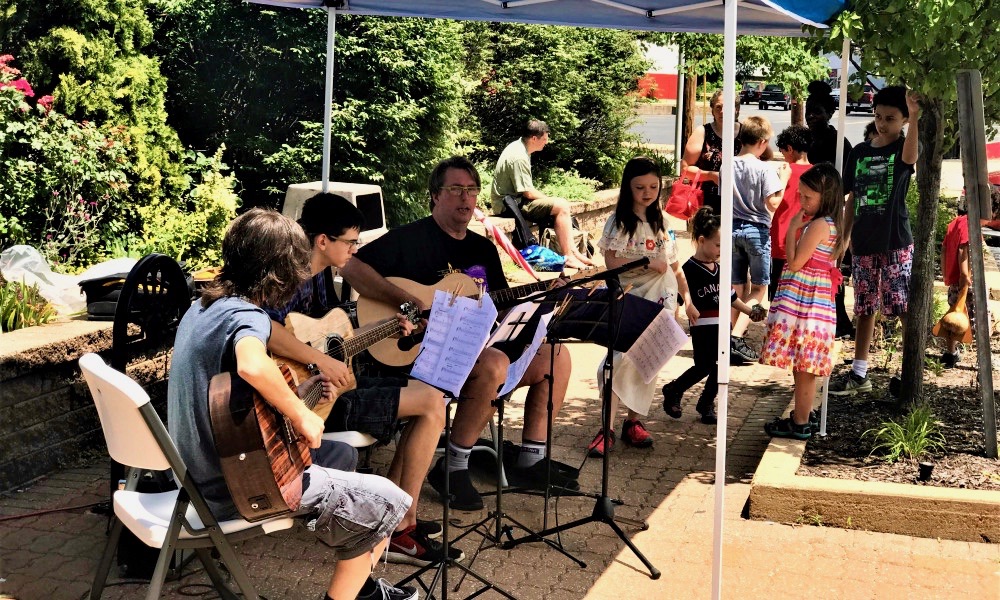
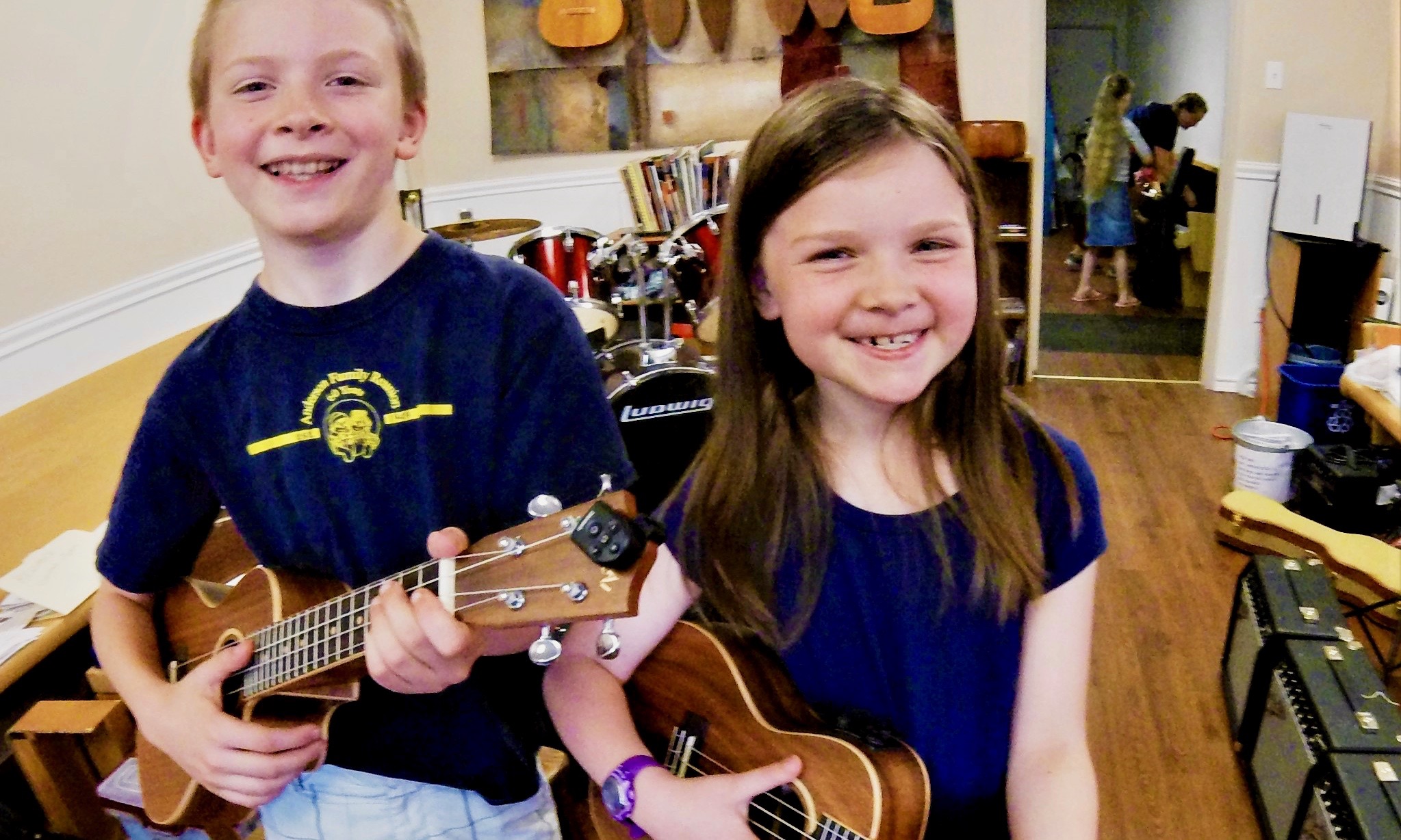
How can people get involved in helping and supporting the Strings Attached Project?
Connection means a lot in any type of venture, with lot of the resources we have to offer and the students involved in the project coming via word-of-mouth and connection from a third party. So if you know or have some connection to a foundation, an individual giver, a company, or a music manufacturer that seems like a good fit for our mission after reading this, please connect us!
You can also visit our website to learn more about the Strings Attached Project and follow us on Facebook and Reverb Nation for consistent updates and news.

